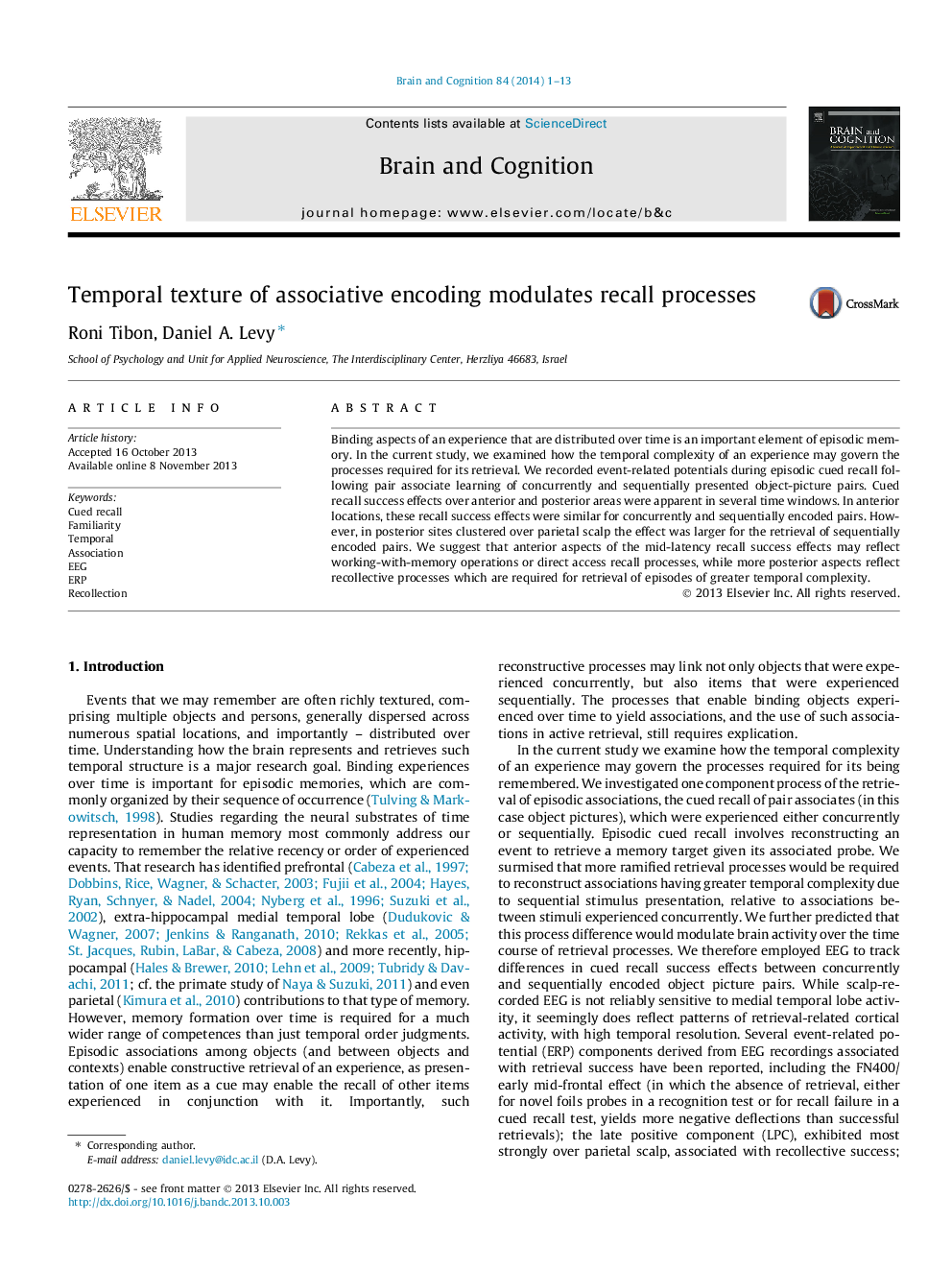| Article ID | Journal | Published Year | Pages | File Type |
|---|---|---|---|---|
| 10455558 | Brain and Cognition | 2014 | 13 Pages |
Abstract
Binding aspects of an experience that are distributed over time is an important element of episodic memory. In the current study, we examined how the temporal complexity of an experience may govern the processes required for its retrieval. We recorded event-related potentials during episodic cued recall following pair associate learning of concurrently and sequentially presented object-picture pairs. Cued recall success effects over anterior and posterior areas were apparent in several time windows. In anterior locations, these recall success effects were similar for concurrently and sequentially encoded pairs. However, in posterior sites clustered over parietal scalp the effect was larger for the retrieval of sequentially encoded pairs. We suggest that anterior aspects of the mid-latency recall success effects may reflect working-with-memory operations or direct access recall processes, while more posterior aspects reflect recollective processes which are required for retrieval of episodes of greater temporal complexity.
Related Topics
Life Sciences
Neuroscience
Cognitive Neuroscience
Authors
Roni Tibon, Daniel A. Levy,
